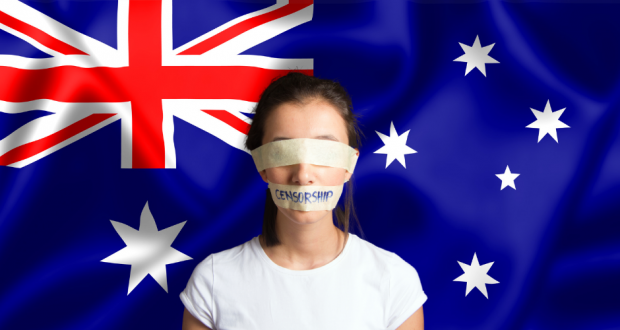
Breaking News
 BREAKING: President Trump Announces Tulsi Gabbard as Director of National Intelligence
BREAKING: President Trump Announces Tulsi Gabbard as Director of National Intelligence
 BREAKING HUGE: President Trump Announces Nomination of GOP Rep. Matt Gaetz...
BREAKING HUGE: President Trump Announces Nomination of GOP Rep. Matt Gaetz...
 How to Verify a Quote - #SolutionsWatch
How to Verify a Quote - #SolutionsWatch
 Former Trump Senior Advisor Steve Bannon recommends that General...
Former Trump Senior Advisor Steve Bannon recommends that General...
Top Tech News
 Smart patch buzzes, twists and presses the skin to deliver a sense of touch
Smart patch buzzes, twists and presses the skin to deliver a sense of touch
 Making a long lasting fatwood torch
Making a long lasting fatwood torch
 Space-based solar power to be beamed to Iceland by 2030
Space-based solar power to be beamed to Iceland by 2030
 Airbus's Electric Air Taxi Just Made Its First Flight
Airbus's Electric Air Taxi Just Made Its First Flight
 Launch to the Stars in 2050 After 25 Years of SpaceX Starship
Launch to the Stars in 2050 After 25 Years of SpaceX Starship
 Competition to Design Human Crewed Interstellar Spaceships
Competition to Design Human Crewed Interstellar Spaceships
 See The Human Brain Like Never Before
See The Human Brain Like Never Before
 Scientists stun industry with breakthrough in energy storage technology:
Scientists stun industry with breakthrough in energy storage technology:
 Interstellar Generation Ship Propulsion Technology by 2050
Interstellar Generation Ship Propulsion Technology by 2050
 This Helium-Filled Aircraft Broadcasts Internet From the Stratosphere
This Helium-Filled Aircraft Broadcasts Internet From the Stratosphere
New Australian Law, If Passed, Will Make The Gov't The Sole Arbiter of Truth'

It imposes obligations on digital communications platform providers to prevent the dissemination of content "that contains information that is reasonably verifiable as false, misleading or deceptive, and is reasonably likely to cause or contribute to serious harm of a specified type (misinformation and disinformation)."
Several dissenting politicians have expressed outrage and incredulity at the legislative move. Nola Marino, a member of the right-wing opposition Liberal Party said that she did not think that Australia, a liberal democratic society, would ever be "debating a bill that is explicitly designed to censor and silence the Australian people."
National Party member Keith Pitt described the legislation as a "yawning chasm that is incredibly … dangerous to this country." He expressed shock that the amendment was being put forward, adding that Western democracies such as Australia have been built on freedom of expression and freedom of religion. Such principled objections were ignored, however. The legislation now has only to pass in the Senate (the upper house) to become law.
The first and most obvious criticism of the law is that it puts the government authority, the Australian Communications and Media Authority (ACMA) in the ridiculous position of deciding what is and isn't "false" information. That is not only absurd – how could ACMA, for example make judgements on subjects like vaccines or viruses – it means that the law cannot be applied universally.
Governments routinely put out false information, arguably more often than they put out true information. Will they be penalized? Of course not. Advertizers present information that is false. Will they fall under his law? No. It will only be directed at people who are saying things that the government does not like, especially in relation to health policy. It is politics, not law.
(LifeSiteNews) — In a crushing blow to free speech in Australia, the lower house of federal parliament has passed an amendment, known as the Misinformation and Disinformation Bill, to the Broadcasting Services Act 1992. It imposes obligations on digital communications platform providers to prevent the dissemination of content "that contains information that is reasonably verifiable as false, misleading or deceptive, and is reasonably likely to cause or contribute to serious harm of a specified type (misinformation and disinformation)."



